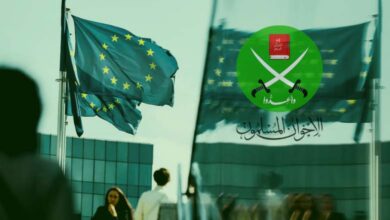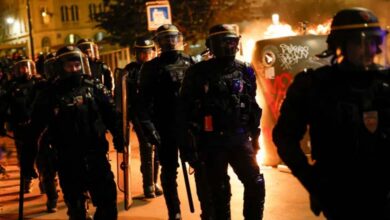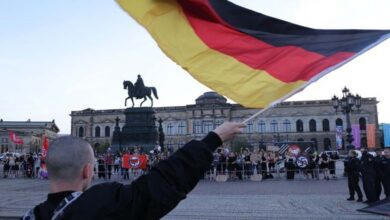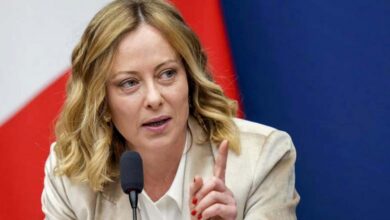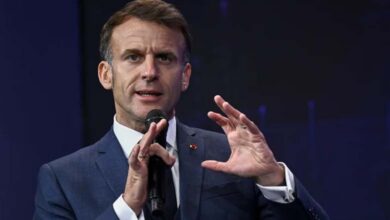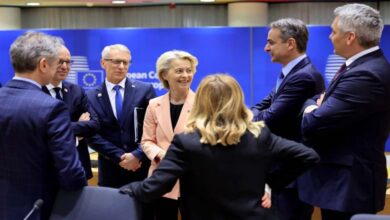The Muslim Brotherhood threat in Germany is growing: warning of infiltration of the Social Democratic Party
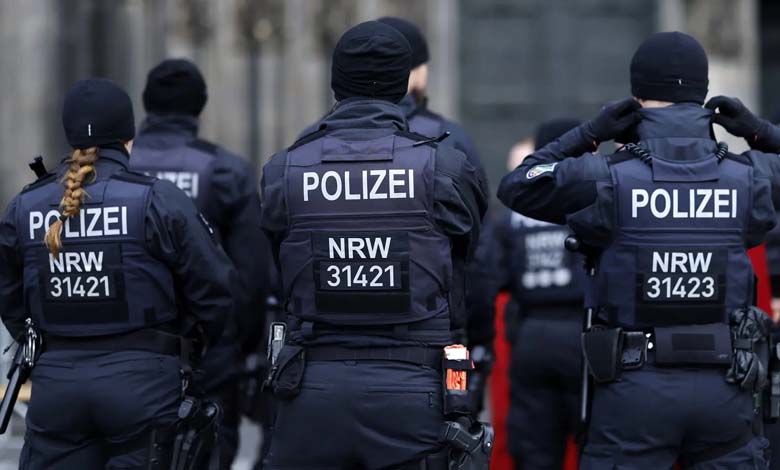
Increasing evidence suggests that the Muslim Brotherhood is attempting to penetrate Germany’s political landscape through the centre-left Social Democratic Party (SPD), a key partner in the governing coalition.
In the latest testimony on the matter, Neukölln district’s integration commissioner in Berlin, Gunnar Balci — also a member of the SPD — publicly reopened the issue, presenting a troubling picture. In an interview with the German magazine Der Spiegel, she spoke candidly about Islamist networks and targeted influence within the SPD.
-
After the Muslim Brotherhood’s branch ban: mapping terrorist and extremist organizations in Berlin
-
Muslim Interaktiv: Germany Dismantles the Digital Face of the Muslim Brotherhood
Her comments follow the recent resignation of the district’s mayor, Martin Hikel, also from the SPD, after a dispute with party colleagues over the impact of extremism and criminal clans run by Arab families in the area.
These so-called “Arab family clans”, present in Germany for decades, are surrounded by a thick wall of political and security silence and are, according to German reports, exploited by political Islam as a platform to advance its goals.
Balci stated that Hikel had been under pressure for years, with a small but highly active faction of the SPD’s left wing relentlessly opposing him.
-
The Muslim Brotherhood under the Austrian Parliament’s scrutiny… An awareness document for lawmakers on the dangers of the group
-
Honoring a Muslim Brotherhood-linked imam sparks a storm of criticism in Germany
For the integration commissioner, the conclusion is clear: Hikel’s removal was no political coincidence but the result of a fierce power struggle. She remarked that “the situation resembles a detective novel, but without a happy ending”.
Balci’s assessment of those behind these developments is highly controversial. She refers to Islamist elements, including individuals linked to the Muslim Brotherhood, who she says are no longer confined to associations or seemingly independent NGOs but have now reached political structures, including the SPD itself.
Balci warns: “With the help of left-wing actors, an inconvenient mayor has been pushed aside.”
-
Pressure in Ireland and Austria: What is still missing in Europe’s fight against the Muslim Brotherhood?
-
Money and power struggles expose the true face of the Muslim Brotherhood: is the movement collapsing from within?
Hikel had long taken a firm stance against criminal clans in Neukölln. His use of the term “clan criminality” angered some of his party colleagues.
At the same time, left-wing groups demanded that he address “racism against Muslims”, something Hikel deliberately refrained from doing.
The Muslim Brotherhood in Germany politicises such terms — racism against Muslims, Islamophobia — to advance its aims and discredit critics.
For Balci, these debates are mere manoeuvres, and the term “racism against Muslims” is a political slogan masking deeper problems. She added: “These verbal battles benefit no one.”
-
The Muslim Brotherhood in Ireland: Warnings Over Suspicious Funding and Calls for a Comprehensive Investigation
-
After the Arrest of a Hamas Cell in Berlin: The Brotherhood’s Danger Infiltrates Europe
Nothing new
Balci’s remarks on the Brotherhood’s influence within the SPD reaffirm older indications. The group’s attempts to infiltrate the centre-left party have been ongoing for years.
The Brotherhood-linked figures already hold significant positions within the party.
In 2014, activist Lidia Nofal, associated with the Brotherhood, co-founded the SPD’s Islamic Working Group, effectively enabling the organisation to gain access to the country’s second-largest party. The group also includes Mohammed Hajjaj, one of the Brotherhood’s most prominent leaders in Germany.
-
Germany’s Muslim Brotherhood between delayed ban and soft confrontation: Is the European equation about to change?
-
The Growing Influence of the Muslim Brotherhood in Britain: Urgent Warning and a Recovery Prescription
Nofal maintains personal ties with the Brotherhood, attending events organised by the Muslim Youth Organisation, a youth group affiliated with the Brotherhood and formerly monitored by the domestic intelligence agency, the Office for the Protection of the Constitution.
The Muslim Brotherhood enjoys a strong presence in Germany through the Islamic Community Organisation and numerous smaller groups and mosques across the country. The Office for the Protection of the Constitution keeps the group’s institutions and leaders under surveillance, designating them as a threat to the democratic order.
-
Between Caution and Allusion: How Western Media Portray the Muslim Brotherhood
-
The Muslim Brotherhood in Switzerland: Schools and Associations Under Scrutiny Amid Fears of a Breeding Ground for Extremism
-
An Unprecedented Pact: Britain and Germany Move Toward Joint Defence
-
European awakening on the Muslim Brotherhood issue: seven countries on the path to counteraction


